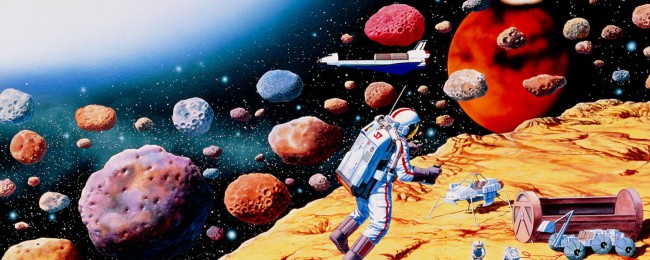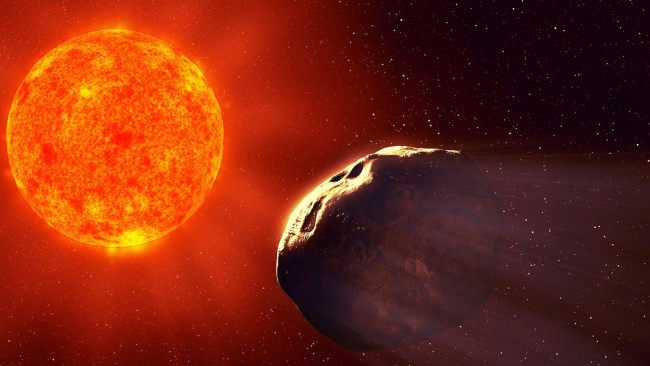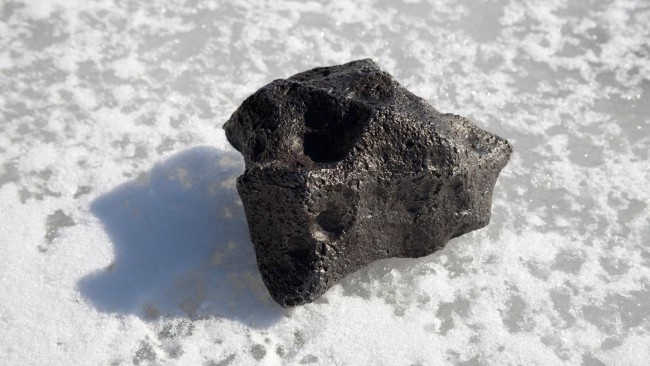
While our Earth slowly creeping in its orbit around the Sun, during this time, it flies by close to 13 000 asteroids. Known as near-earth objects, those asteroids are of more than academic interest; they are real treasures. Resources that are stored in them, will provide us with untold wealth, future oil fields of the cosmos.
The only question is whether it’s worth it. Some people wonder how to actually implement this, it seems impossible for our world plan. But those involved in the nascent industry of resource extraction on asteroids, however, to note the many misconceptions about such attempts.
“It is natural to doubt when you have little know — says Chris Lewicki, President and chief engineer of the asteroid mining Planetary Resources. Most people make conclusions on the headers. We merely repeat what we had done throughout history, just in a new environment”.

Natural resources have allowed us to expand the frontiers. When Europeans first settled in North America, they lived on the resources found on this earth, and thus created one of the largest economies in the world. In the 20th century oil helped shape and redefine the world; significant changes like these began the very few forces.
“The miners always come first, and so it was throughout history,” says Chad Anderson, managing Director, Space Angel Network, a global network of the first investors who seek to access the emerging private space industry.
Those who are beginning to think about the development of the asteroids, consider that have the potential to shape and define the 21st century. “The results can be revolutionary both in terms of the benefits of space exploration, and all of us on Earth,” said Steve Eisenhart, senior Vice President of Space Foundation, a global non-profit organization that promotes space-related initiatives.
Produced in space
The first thing to understand about the mining of space resources is that it is not about the development of asteroids and even the moon to return these resources to Earth. “On Earth they will have less value,” says Anderson. No, we are talking about saving resources in space and use them to continue the exploration of the Solar system and beyond.
The most important resource for future space miners will be water. And not without reason: journey into space by today’s standards the equivalent of a road trip across the world, only fuel will have to take with you. The path in the first 300 kilometers from the Earth would require more energy than in the next 300 million kilometers. “Once in Earth orbit, you will already halfway to any place in the Solar system,” says Lewicki.

But if rocket fuel can be produced in space for the sake of space, this problem can be solved. When the water splits into its components — hydrogen and oxygen — you get two of the most common element of rocket fuel. What is even more interesting, water in the Solar system is full. She’s on the moon, on Mars, on asteroids, and we have not looked further.
Asteroids are of particular interest to Planetary Resources. “We know that the asteroids have water, because its found on the meteorites which have fallen to the surface of the Earth, says Lewicki. They also don’t need a lot of energy to land. It’s easier than making a trip to the moon”. Such near-earth asteroids can be extraterrestrial “gas stations”.
As humans move beyond Earth’s orbit, water is becoming increasingly important for the sustenance and cultivation of food. It can even be used to protect astronauts from radiation. While shipping tons of water into space costs about $ 50 million.
Asteroids also give us the opportunity to create tools in space. “Iron is full, says Lewicki — as well as Nickel and cobalt. Using technologies like 3D printing, you can pick up material from the asteroid and print something that is usually on the rockets not taking”. Tools, cars, even homes can be built outside of the Earth, which will considerably reduce the cost of space exploration.

Of course, the space, as they say, it’s difficult, and the extraction of resources beyond Earth is clearly not a walk in the Park. “Of course, there will be problems to overcome, but such is the history of the cosmos,” says Eisenhart. Planetary Resources says that it is already making money from the technologies developed, not even begin to extract resources on Earth.
“It is important to know that what needs to happen — it’s already happening,” says Lewicki. The company has already launched one satellite into orbit, and the next will be engaged in search of water, using infrared scanning system.
First, water can be extracted from the asteroid to the first half of 2020. This will mark the beginning of a new era, when mankind will be released from the sandbox of the planet and will forever overshadow his presence space. “I like your impertinence, but even more that it inspires imagination and innovation,” says Eisenhart.
Of course, mining asteroids is causing some legal issues. In the US the law recognizes that although you are not entitled to ownership of the Moon or an asteroid, you own the content that they take, is the same as no ownership interest in the ocean, but the fish caught from it.
This means that private companies can go to space, take necessary materials and it will be perfectly legal. Legal framework for resource extraction in space is already created. Where we will lead the mining resources in space is impossible to predict. But its supporters believe that investing in the long-term future of us as a species. Perhaps we will not see the benefit of their initiatives, but our descendants, who will spread out across the Solar system, may well be satisfied with.
